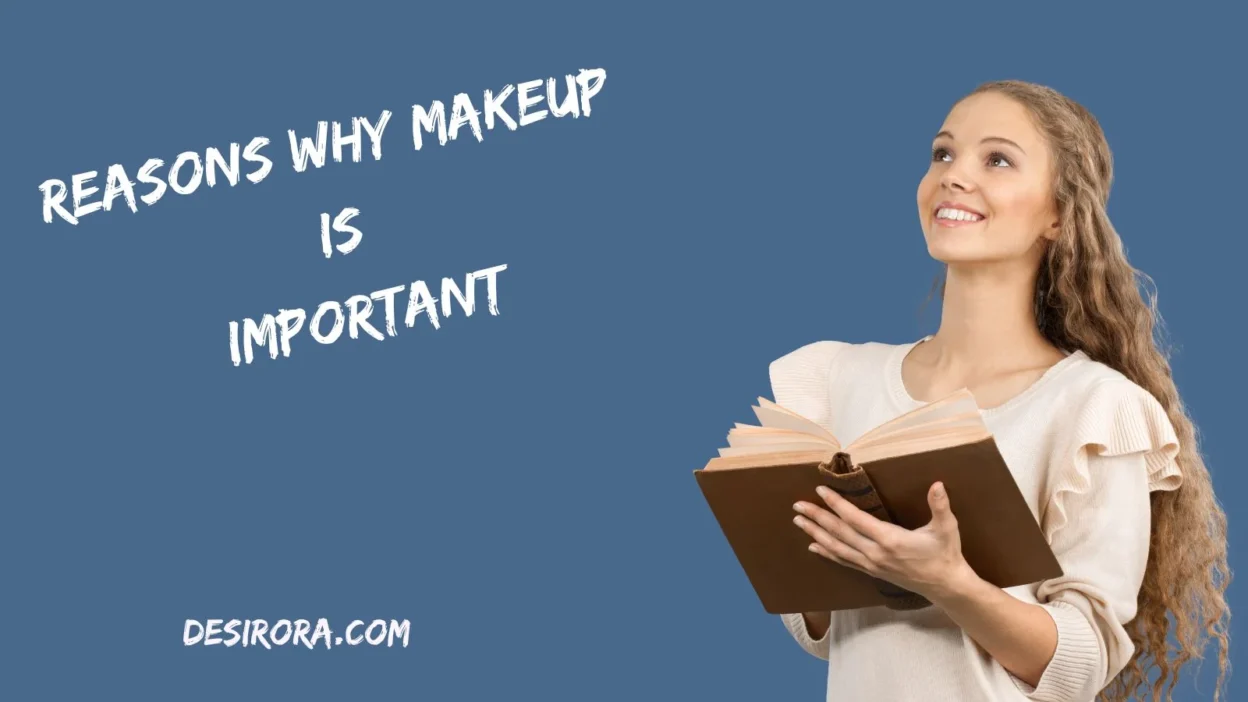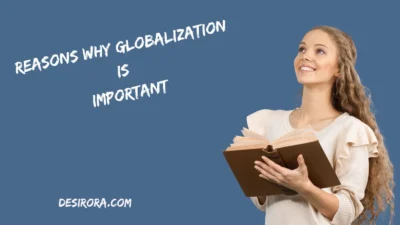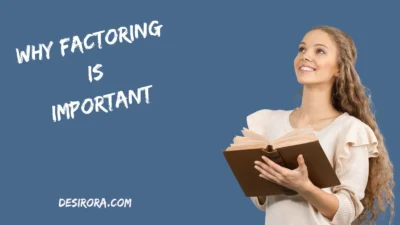Makeup has always been more than just a way to add color to the face. For some, it’s a daily ritual, a calming moment before stepping out into the world. For others, it’s an art form—a canvas where creativity meets self-expression. Whether you’re applying a subtle foundation for a polished look or experimenting with bold, dramatic eyeshadow for a night out, makeup serves countless purposes.
Across cultures, eras, and professions, makeup has evolved into a tool that shapes identity, boosts confidence, and even protects skin. Let’s explore the many reasons why makeup is important and how it continues to influence our personal and professional lives.
Makeup as an Art Form
Makeup is often compared to painting or writing. Just as writers use words and painters use brushes, makeup lovers use eyeliners, foundations, and lipsticks to create looks that tell stories.
- Creative expression – Choosing bold red lipstick might scream confidence, while soft pastel eyeshadow can whisper elegance.
- Experimentation with colors and styles – Bright blues, smoky grays, nude tones—each shade sets a mood.
- Artistic flair – Like blending watercolors, blending contour and highlight requires skill and practice.
“Makeup is not a mask; it’s a form of self-expression.” – A popular saying among artists.
| Expression | Synonyms | Example in Makeup |
| Artistic | Creative, expressive | A daring winged eyeliner reflects artistic flair. |
| Experimentation | Trial, exploration | Testing new foundation shades is experimentation. |
| Transformation | Change, makeover | Glitter eyeshadow can transform a simple look. |
Transformation and Self-Expression
Makeup has the power to transform appearance instantly. It enables individuals to adopt different personas, whether for a party, a stage performance, or a wedding.
- A smoky eye for date night conveys mystery.
- Glitter and bright shades for festivals show playfulness.
- A natural “no-makeup makeup look” highlights subtle beauty.
Just as people dress differently for occasions, makeup adapts too. A bold red lip might be perfect for a corporate event, while soft nude tones feel right for brunch with friends.
Think of makeup as a storytelling device—one day you’re the rebel with dark eyeliner, the next you’re radiating sophistication with a polished, minimalist style.
Concealing Imperfections with Confidence
Not everyone has flawless skin, and that’s okay. Makeup helps people feel more comfortable in their skin by camouflaging imperfections:
- Blemishes, acne, and scars can be softened with concealer.
- Dark circles can be minimized with color-correcting products.
- Uneven skin tone can be evened out with foundation.
A good base—whether foundation, BB cream, or concealer—creates a smooth canvas. It doesn’t erase individuality; instead, it allows a person to present their best version confidently.
Example:
Imagine walking into a job interview with visible redness or breakouts. While natural skin is beautiful, makeup can give an added boost of self-assurance, helping you focus on the conversation instead of your insecurities.
Boosting Self-Esteem and Confidence
There’s a well-documented psychological phenomenon called the “lipstick effect.” Research from Harvard Medical School and the University of Chieti in Italy found that women who wore makeup often reported increased self-esteem, confidence, and even better performance in certain academic and professional settings.
How makeup boosts confidence:
- Enhances natural features
- Helps create a polished, professional image
- Reduces insecurities related to blemishes or uneven tone
In social situations, makeup acts like a confidence booster—much like putting on a sharp suit before an interview. When you look prepared, you feel prepared.
“Makeup gives you the power to face the world with a little more confidence and a lot more joy.”
Enhancing Natural Features
Makeup isn’t just about covering; it’s about accentuating natural beauty.
- Eyes – Mascara and eyeliner make eyes appear larger and more defined.
- Cheeks – Blush adds vibrancy, while contour creates the illusion of higher cheekbones.
- Lips – Lipstick and gloss highlight the shape, making lips look fuller and more attractive.
Table: Makeup Tools and Their Impact
| Feature | Product | Impact |
| Eyes | Mascara, eyeliner, eyeshadow | Larger, vibrant eyes |
| Cheeks | Blush, contour | Adds structure, glow |
| Lips | Lipstick, gloss | Fuller, defined look |
| Face | Foundation, concealer | Smooth, even tone |
By highlighting what’s already there, makeup emphasizes authentic beauty without necessarily hiding flaws.
Professional and Media Impact
In today’s competitive world, first impressions matter. In corporate environments, wearing subtle makeup can convey professionalism, preparedness, and attention to detail.
- Workplace – A well-groomed appearance helps create an image of competence and reliability.
- Photography & Media – Makeup is essential under harsh lighting and cameras, ensuring features don’t look washed out.
- Performances – Stage makeup helps actors and performers resemble their characters while ensuring expressions are visible to large audiences.
Example:
A wedding photographer often requests brides to wear heavier makeup because studio lights and flashes can otherwise make faces appear dull in photos.
Health and Protection Benefits
Modern cosmetics are not just about looks—they come with protective and skincare properties.
- SPF foundations and powders shield against harmful UV rays.
- Moisturizing properties in BB creams and tinted moisturizers keep skin hydrated.
- Pollution barriers in certain products help protect against dust and toxins.
Did you know? Many foundations today act as both coverage and skincare, blending makeup with moisturizing and anti-aging ingredients.
Makeup as a Personal Ritual
For millions, applying makeup isn’t a chore—it’s a personal ritual.
- A calming act before facing the day
- A few minutes of “me-time” in a busy schedule
- A way to set a positive, empowered mindset
Many describe makeup application as therapeutic. Much like journaling or yoga, it allows people to center themselves. The process can feel meditative, providing emotional balance and even stress relief.
Cultural and Historical Importance of Makeup
Makeup is an integral part of human culture, tracing back thousands of years.
- Ancient Egypt – People used kohl eyeliner for beauty and sun protection.
- China and Japan – White powders symbolized nobility and elegance.
- Modern Times – Makeup is a booming industry worth billions, tied to identity, empowerment, and artistry.
Across weddings, festivals, and cultural ceremonies, makeup continues to symbolize tradition, beauty, and transformation.
The Psychological Effects of Makeup
Makeup doesn’t just change how others see us—it also changes how we see ourselves.
- The lipstick effect suggests women wearing makeup perform better in tests and feel more competent.
- Wearing makeup can improve emotional states, making people feel more prepared and focused.
- Colors affect mood—red lipstick boosts energy, while soft nudes create calmness.
Idiomatic Expression Example:
- “Put your best face forward” – Makeup helps people literally embody this saying in both social and professional life.
Makeup in the Digital Age
We live in an image-driven society, where selfies, Instagram stories, and Snapchat filters shape identity. Makeup plays a central role in creating photogenic looks that stand out online.
- Selfies – Even coverage prevents washed-out features.
- Influencers – Showcase products, styles, and trends.
- Digital identity – Makeup enhances how people present themselves to the world.
A flawless photo doesn’t just earn likes; it builds personal branding in today’s digital age.
Special Effects and Entertainment Makeup
Makeup isn’t limited to beauty—it’s essential in film, theater, and entertainment.
- Special effects makeup transforms actors into zombies, skeletons, or fantasy characters.
- Performers rely on makeup to define features under stage lights.
- Artistic professionals use it to tell stories visually, creating powerful illusions.
From Broadway to Hollywood, makeup artistry is a cornerstone of the entertainment industry.
Makeup as Empowerment and Personal Choice
One of the biggest misconceptions is that makeup is superficial. In reality, it’s about choice and empowerment.
- Some wear makeup to feel strong and polished.
- Others embrace bare skin as their statement of confidence.
- Both choices are valid and personal.
Makeup doesn’t have to be about conforming; it can be about rebelling, experimenting, or simply having fun.
Challenges, Concerns, and Moderation
While makeup offers countless benefits, it’s essential to acknowledge the challenges:
- Excessive use can clog pores or cause breakouts.
- Improper removal may lead to skin issues.
- Dependency can affect self-image if one feels incomplete without it.
The key lies in moderation and skincare balance—cleansing properly, choosing high-quality products, and listening to your skin.
Conclusion:
Makeup is not just about vanity. It’s a multifaceted tool that boosts confidence, enhances natural features, provides protection, and serves as an outlet for creativity and cultural expression. Whether you’re preparing for a professional challenge, a celebration, or simply starting your day, makeup has the power to transform not just appearance but also mindset and emotions.
In short, makeup is art, armor, and empowerment—all rolled into one.
FAQs
Q1: Is makeup bad for skin if used daily?
Not necessarily. With proper removal and skincare, daily makeup can be safe. Always choose quality, skin-friendly products.
Q2: Can makeup really boost confidence?
Yes. Studies show makeup can improve self-esteem, performance, and mood—this is known as the “lipstick effect.”
Q3: Does makeup protect against sun damage?
Many modern products contain SPF and pollution barriers that act as protective shields.
Q4: Is wearing makeup necessary for professional settings?
Not mandatory, but subtle, polished makeup can enhance professional presence and confidence.
Q5: How has makeup evolved through history?
From ancient Egyptian rituals to today’s billion-dollar industry, makeup has always reflected beauty, culture, and empowerment.

Aldous Huxley was a visionary writer and philosopher whose works explored human nature, consciousness, and the future of society. His ideas continue to challenge minds and inspire generations.



